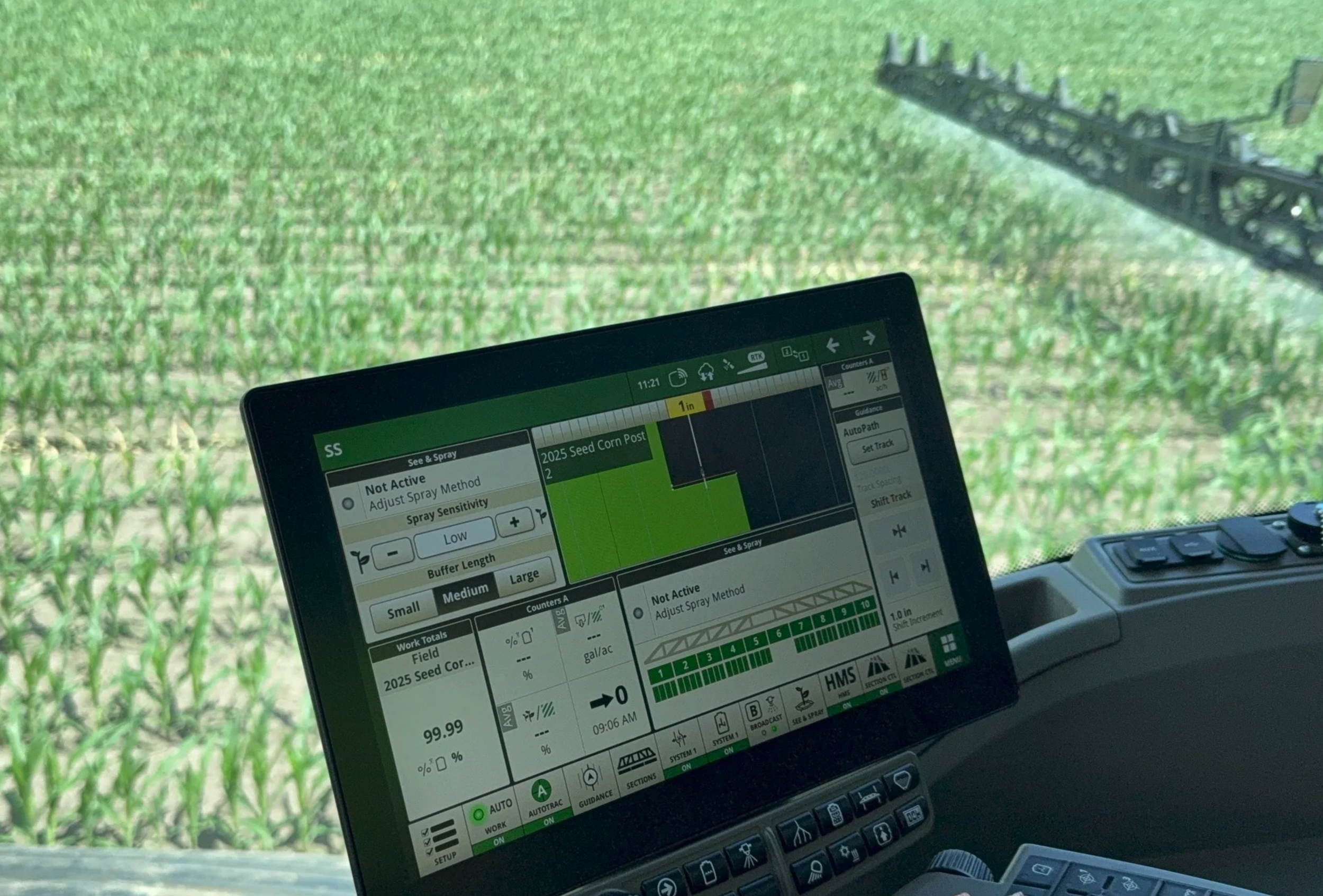Review of National Conference - Top Environmental Issues for 2026
/I recently attended and spoke at the American Bar Association’s national conference for the Section of Environment, Energy, and Resources (SEER) in DC. Here are the top three issues I heard about that could impact agriculture in 2026.
not shutdown: these views!
Federalism. Sounds wonky but state and federal governments are facing real questions about how power should be shared between them. The current justice department has sued more states in contested lawsuits than any other justice department. States are defending against federal lawsuits. There are questions about states “giving back” environmental programs because states simply cannot fund those programs any longer. What happens if the EPA can’t/won’t take these programs back? Iowa gave its RCRA program back to the EPA years ago due to budget cuts. I won’t even begin to speculate on how politics might play a role in states considering whether to return programs to the current federal administration.
Administrative law. I know this doesn’t sound exciting, but I think the impacts could be huge. We used to operate under the Chevron doctrine, which essentially had two steps to apply in considering an agency’s regulatory interpretation: first ask if the regulation was clear and if so, just apply it as written. If it was not clear, go to step two, which was to ask whether the agency’s interpretation was reasonable. If so, courts were supposed to defer to the agency. Loper Bright overturned this idea, but to what end? Chevron was never supposed to be an automatic mechanical win for the agency. This is the piece that Loper Bright overturned. Deference isn’t completely gone—sometimes Congress expressly delegates policymaking discretion to the agency. When the best reading of the statute suggests that Congress intended to confer discretionary power to the agency, the “arbitrary and capricious” review standard still applies. Circuit courts are working through this standard and attempting to apply it to both rule-making and adjudicatory contexts. How will that standard apply to an agency’s decision to rescind rules previously upheld under Chevron? Perhaps more importantly for environmental and agricultural questions, when an agency is engaged in scientific judgment calls, making fact-dependent and context-specific decisions, what level of review should apply? Should courts still defer to the agency in environmental cases where significant fact finding is required? As other administrative cases wind their way through the federal court system (
NEPA - rightly or wrongly characterized as the most litigated federal statute, the National Environmental Policy Act was again in the limelight in 2025. NEPA requires federal agencies to assess the environmental and related social and economic impacts of their proposed actions before making decisions. In May 2025, the Supreme Court decided the Seven County case. The issue was whether NEPA requires an agency to study environmental impacts beyond the proximate effects of the action over which the agency has regulatory authority. In other words, whether the agency is required to consider indirect, upstream, or downstream effects of a project it is approving. The case considered a proposed rail line to transport oil from Utah near a dinosaur fossil park. The challenge focused on the claim that the agency’s NEPA review failed to analyze “reasonably foreseeable” upstream effects (increased oil drilling in the Uinta Basin) and downstream effects (further refining of crude oil) that would result from the new rail link. The Court, in a unanimous decision, ruled in favor of the agency. The Court explained that substantial deference is owed to agencies under NEPA when they make decisions about how to structure and scope an environmental impact statement. NEPA is a procedural statute not a substantive one—it requires a process but does not require certain outcomes. An agency is not required under NEPA to evaluate the environmental effects of upstream or downstream projects over which the agency has no authority and which are not part of the same proposed action. In this case, the Surface Transportation Board’s decision not to analyze the increased upstream oil drilling and downstream refining was reasonable given the Board’ lack of control over those activities. The Court gave deference to the agency’s fact dependent choices. (See above!) The decision limits the scope of required NEPA reviews in the future.
There were many other important topics at the SEER conference — including state and federal biosolids regulations, energy demand and data centers, climate change litigation, and navigating U.S. versus E.U. environmental standards. Environmental law and agricultural law overlap is numerous ways, and this conference reminded me that the changes we see in Supreme Court environmental jurisprudence impact farms’ and agricultural industries’ rights here in the Midwest.




